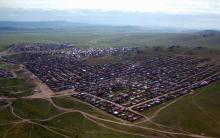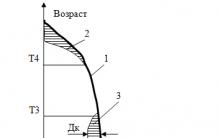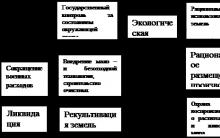The Kingdom of Bhutan is one of the most mysterious countries on our planet. This state is located between India and China, on the southern slope of the Great Himalayan Range, which rises to an altitude of 7000 meters above sea level.
Depending on the altitude, Bhutan has different climatic zones, from highlands to subtropical jungles.
The Bhutanese themselves call their country Druk Yul or Druk Tsenden, which translated means “the country of the thunder dragon.”
For many centuries, the country was reliably isolated by the Himalayas from the outside world, which allowed a unique, authentic culture to be preserved here. Tantric Buddhism is declared the official religion and “spiritual heritage” of Bhutan.
Ministry of Happiness
The Government of Bhutan, considering it absurd to rely on such financial indicators, as Gross National Product (GDP) created the Ministry of Happiness.
The government of this country established the state “Commission for General National Happiness” (Gross National Happiness Commission) headed by the Prime Minister.
The government declared the main goal to be the pursuit of happiness for each of its citizens. This is even enshrined in Article 9 of the Bhutanese Constitution. When determining the development strategy of the state, the leadership of this country relies on such an indicator as the “Index of National Happiness” - Gross National Happiness.
The Ministry of Happiness has held several international conferences to which many Western economists have been invited (including Nobel laureates in Economics), with the aim of developing methods for calculating the Index of National Happiness, based on a combination economic situation in the country and the life satisfaction of the population. The smile of the population is one of the indicators in the developed formulas.
Are you happy?
The question “Are you happy?” asked during population censuses. During last census In 2005, 45.2% of the population answered this question “very happy”, 51.6% “happy”, and only 3.3% “not very happy”.
What else is characteristic of a country that considers the happiness of the population to be a category of economic development?
Respect for traditions
The most noticeable difference is that Bhutan carefully protects its centuries-old cultural traditions. Sometimes it’s funny, for example, one of the laws requires Bhutanese to wear national clothes.
Tourism and mountaineering are limited in the country. Expensive, non-extendable visas: 2 weeks - $100. Any movement around the country outside the capital, only in organized groups, with an official guide.
Until the end of the 20th century, television was banned in the country; in 1999, Bhutan became the last country on the planet to begin television broadcasting - when the only state television channel began operating.
There is virtually no corruption in Bhutan. In the 2006 Transparency International ranking, Bhutan ranks 32nd in the world for corruption, behind only Singapore, Hong Kong, Macau and the UAE in Asia.
Lawyers are outlawed here! According to the king’s decree: “Do not allow people into the courtroom who are capable of making black white and white black.”
The King of Bhutan, Jigme Khesar Namgyel Wangchuk, is the youngest monarch in the world, (born 1980) very popular in his country and abroad. All over Asia, and not only in it, there are clubs for fans of the young monarch, from India to Indonesia, brochures and posters dedicated to him are sold everywhere, and several societies of girls in love with him operate on the Internet. The royal wedding raised Bhutan's happiness index by several points.

His Majesty is fighting for the health of his subjects - Bhutan has become the only country world, where smoking is prohibited throughout its territory.
The government is actively concerned about the environment (half of Bhutan's territory has been declared national parks, in which, for example, hunting is prohibited), for this reason, industrial development is not included in the plans of the Bhutanese authorities.
Bhutan is an agricultural country. For more than 80% of the population, agriculture and forestry are the main source of income. The main export products are organic rice, fruits and electricity generated by hydroelectric power plants.
The country is still very little studied, and vast territories in the south and central part are completely undeveloped by people and represent huge reserves with amazing flora and fauna. Bhutan has preserved all this for very simple reasons - hunting is prohibited and deforestation is practically not carried out. The kingdom is fully self-sufficient in food and clothing. At the same time, almost the entire population wears national clothes - kho.
People's lives
People live in large and beautiful two- or three-story houses scattered along the mountain slopes along small valleys. There are not many cities, but the largest is Thimphu, which is also the residence of the king and the capital and has about 40 thousand people.
There are about 200 dzong monasteries on the territory of the kingdom, some of which were built back in the 7th century. King of Tibet Songsten Gampo. For several centuries they served as a refuge from Tibetan invaders and wild animals. Over time, settlements arose around the dzongs.
This is a truly amazing country without hunger and crime, where people live in joy, without knowing wars and poverty. The Bhutanese themselves, of whom, unlike other countries in the region, are quite small, are open, hospitable, and not at all spoiled modern world and carefully preserve their unique culture.
It is forbidden to kill animals here, and therefore almost everyone is vegetarian. The import of chemical fertilizers is prohibited here, and everything that grows on this land is itself environmentally friendly. More interesting feature This state can be considered to mean that forests in Bhutan are not cut down, but rather planted. It is not enough to say that this is a country of Buddhism, it is a country of purity and enlightenment.
Despite the fact that the early history of Bhutan is still poorly understood, scientists, through archaeological excavations and examining stone tools, have come to the conclusion that civilization existed in the territory of modern Bhutan as early as 2000 BC. Although there is almost no written evidence of ancient times. The history of the country is known mainly in episodes, due to the fact that in 1827 the largest library in the then capital of Bhutan, Punakha, burned down. Historical events are now inseparable from legends.
History milestones:
III century BC e. - The Thepu tribes lived on the territory of Bhutan.
9th century - the beginning of the settlement of the country by Tibetan tribes.
XVI century - emergence of an independent Bhutanese state.
XIX century - establishment of British control over the country.
1949 - the country gained independence.
Source: veda-journal.ru
There are almost 200 countries in the world - large and not very large, small and very tiny. Statistics say that 50 of them are visited annually by more than one million guests, and no more than 20 can be called touristic. I wonder how many countries are on your list that you have visited or want to visit? Our website “Travel with Pleasure” aims to introduce you to the most interesting countries. Today I invite you to take a trip to one of the most unusual and exotic countries. For greater intrigue, I did not include the name of this country in the title, but from the first photo you will immediately guess which country we will be talking about.This mysterious country of happiness is called Bhutan.
It has almost become a tradition for me, before choosing an unusual island or country for a story, I flip through the pages of my book. Today I settled on this brand

The stamp depicts a rare animal against a backdrop of snow-capped mountains, and at the top is the price of the stamp in an unknown currency. With the Internet, it’s easy to deal with animals. This is Takin - a slow, heavy animal, with a large Romanesque nose and thick hair, somewhat similar to a musk ox and living in the mountainous regions of the Himalayas and Tibet. The price turned out to be more difficult.
CH - this is Chertum - the name monetary unit in Bhutan, equal to 1/100 ngultrum.

Since one ruble corresponds to approximately 1 Bhutanese ngultrum, then 4 CH corresponds to 4 kopecks at the official exchange rate. To my joy, the price of stamps is determined not by the official exchange rate, but by the rarity of a particular stamp, i.e. its issue and the country where it was issued. Agree that Bhutan is not a very well-known country in the world, and for a population of 800,000 people, most of whom cannot read or write letters, there is no need for large circulations of stamps.
The first Bhutanese post office began operating in 1962, and stamps for Bhutan were printed in England, India and Japan, and not so much for the needs of the residents of the country, but mainly for philatelists around the world, thus replenishing the treasury of Bhutan! It is not surprising, therefore, that my 4-kopeck stamp is valued at 100 rubles.

With this, the philatelic part of the story, which served as the basis for getting to know Bhutan, can be considered exhausted, and now let’s get acquainted with the country itself.
The Kingdom of Bhutan is an Asian state in the Himalayas, located between India and China. The capital is Thimphu.

According to one version, the name “Bhutan” comes from Bhu-Uttan, which translated from Sanskrit means “highlands” or “mountainous country”. According to another version, the name comes from Bhots-ant, which means “edge (end) of Tibet” or “south of Tibet.”
The form of government here is a constitutional monarchy. The world's youngest head of state, the 5th king of the country of Bhutan, Jigme Kesar Namguel Wangchuk, turned 31 years old. He was educated at Oxford, and is very popular in his country. October 2011 will be remembered by many for the wedding of the ruler with an ordinary 21-year-old student. The ceremony was broadcast on local television.

Photo: His Majesty King Jigme Khesar Namgyal Wangchuk and "Miss Bhutan" Jetsun Pema during a purifying marriage ceremony at the historic Punakha Dzong (Palace of Bliss)

In this protected country, hidden in the mountains, you can see beautiful paradise landscapes and find the purest mountain rivers. It is here that Tibetan culture has been preserved in its pure form. This is a country of Buddhism, purity and enlightenment, in search of which monks many centuries ago came to the slopes of the Southern Himalayas, settled there and live to this day.

The Kingdom of Bhutan had the status of a British protectorate until 1949, and since 1949 it has become independent. Since 1971 and as of 2016, Bhutan has been ranked among the least developed countries peace. However, this is a country happy people!
How can this be, you ask. And everything is very simple.
Bhutan became the first country in the world to declare “Gross National Happiness” (GNH) rather than Gross Domestic Product (GDP) as the official metric of social development!
By the way, Bhutan’s GDP is about 2.5 thousand dollars per person per year, and by this indicator the country is indeed one of the poorest in the world. But in the VNS they introduced, Bhutan is in 8th place in the world, ahead of ALL Western countries. There is no answer yet to the question of what a happiness index is, or how to measure the unmeasurable, but this approach has turned out to be very attractive for many poor countries.
Here I will make a small digression from the topic of Bhutan, and share with you a note that appeared yesterday on the Internet, and from which it follows that the population itself poor country in Europe turns out to be happier than in Russia. Here is an uncut note:
Moldova surpasses Russia and Romania in the ranking of the happiest nations
“The Danes are the happiest nation on the planet. They became leaders in the World Happiness Report ranking of the happiest countries in the world. Compared to last year's study, Denmark has surpassed Switzerland and Iceland, which came in second and third place respectively. Moldova took 55th place, Russia was one line lower. Romania took 71st place, Ukraine - 123rd.
The main criteria for determining a “happy nation” are the level of gross domestic product and average life expectancy. The environmental and social situation and the level of corruption are also taken into account.”
I agree that today more and more scientists are inclined to think that countries should be measured not by strength, not by wealth, but by the happiness of their inhabitants. As a resident and citizen of Moldova, I could be proud of such happiness, but as a scientist, I would really like to look at the formula by which the calculation was carried out. Of course, happiness is a matter too ephemeral and difficult to measure, but nevertheless it is interesting how the country with the lowest GDP in Europe and the most high level corruption (probably everyone is still hearing how 1 billion dollars were stolen from the country’s budget last year) occupies such an honorable place. Maybe in the case of Moldova, someone made a mistake and confused the numerator with the denominator, and even though we are not yet ahead of the rest, we are clearly not on par with Bhutan. Let’s analyze why.
It turns out that Bhutan is the only state in the world where the Ministry of Happiness exists. Thus, happiness is put at the forefront national policy. The government was instructed to produce the happiness of the people. Scientists say that happiness greatly depends on the small things in our lives. Psychologists advise smiling more often, sleeping at least 6 hours, finding a job close to home and doing something new every day. In addition, experts say that a person feels happier when he gives small gifts to others rather than buying something for himself.
This is a truly amazing country without hunger and crime, where people live in joy, without knowing wars and poverty. The Bhutanese themselves, of whom, unlike other countries in the region, are quite small, are open, hospitable, completely uncorrupted by the modern world and carefully preserve their unique culture.

Happy people
It is forbidden to kill animals here, and therefore almost everyone is vegetarian. The import of chemical fertilizers is prohibited here, and everything that grows on this land is itself environmentally friendly. Another interesting feature of this state is that forests in Bhutan are not cut down, but rather planted. It is not enough to say that this is a country of Buddhism, it is a country of purity and enlightenment. The country is still very little studied, and vast territories in the south and central part are completely undeveloped by people and represent huge reserves with amazing flora and fauna.

The Kingdom is fully self-sufficient in organic food and clothing.

The streets are very clean. Compared to neighboring countries- just perfect cleanliness! Garbage is collected separately here! Food waste is collected in green containers, plastic, glass and metal in blue. (Let me make a small clarification. When compared with neighboring countries, they mean dirty India, China and Nepal. In many other Southeast Asian countries, such as Japan, Singapore, South Korea This won’t surprise anyone - everything they have, and most importantly, has been perfectly clean for a long time!)
Unfortunately, tourism and mountaineering are limited in the country. Any travel around the country outside the capital, only as part of organized groups according to programs compiled by Bhutan tour operators, with an official guide.

Compared to neighboring Nepal, which remains at its peak, Bhutan remains relatively untouched thanks to financial policy of its government, which has taken a course towards elite tourism. In addition to processing numerous documents and visas, this is an expensive pleasure. Tourists are charged $250 for each day they stay in the country. Until the mid-1970s, foreigners could only enter Bhutan with the personal invitation of the king or queen. Now there is a state tourism corporation in the country, which oversees no more than a hundred private travel agencies. In 1974, 287 tourists visited Bhutan. Since then, the number of tourists visiting the country annually has been increasing and by 2000 reached 7,000. Compared to other countries, this is very little, but the country’s budget began to be significantly replenished from tourists.
The country's main tourist attraction is the Buddhist monastery of Paro Taktsang, also known as Taktsang Lakhang (“Tiger's Nest” or “Tiger's Lair”). The first temple was built on this rock in 1692. Meditations have been carried out in these caves for a long time.
The rock on which the monastery is located has a height of 3,120 m and is located above the Paro Valley. To get here, you first need to travel by car, then on short, shaggy horses. The highlight of the trip is a multi-hour climb on foot along a stone staircase carved into the rock.
Bhutan has preserved many interesting and unusual things.
Until the end of the 20th century, television was banned in the country; in 1999, Bhutan became the last country on the planet to begin television broadcasting - when the only state television channel began operating.
Since 2004, Bhutan has implemented a complete ban on the sale and use of tobacco. Cigarettes cannot be brought into the country.

The most noticeable difference is that Bhutan carefully protects its age-old cultural traditions. Sometimes it’s funny, for example, one of the laws requires Bhutanese to wear national clothes.
Another curiosity is that one of the national symbols of Bhutan is the phallus. It also serves as a local souvenir. If a small “Eiffel Tower” is brought from Paris as a gift, then many people bring phalluses from Bhutan.

Souvenirs from Bhutan
The monks in the monastery use these wooden phalluses to bless the future children who come, tapping them on the head.
In Bhutan, phalluses are even painted on the walls of houses and shops, in the hope that the Divine phallus will ward off evil spirits.

Einstein was right that everything in this world is relative! In our country, such a drawing in public places is punished for hooliganism, but in Bhutan they are proud of it!
This is such an unusual country, Bhutan.
Various Internet sources were used when working on this article.
♦ Category: .The Ministry of Happiness was created by the Government of Bhutan, which considered it absurd to rely on financial indicators (GDP) as the level of well-being of the country.
The Bhutanese leadership is guided by the Gross National Happiness Index. The National Happiness Index is seen as a key element in building an economy for the Kingdom of Bhutan that is consistent with Buddhist spiritual values.
The Ministry of Happiness held several international conferences, to which many Western economists were invited (including Nobel laureates in economics), with the aim of developing methods for calculating the NHI (National Happiness Index) based on a combination of the economic situation in the country and the life satisfaction of the population.

The smile of the population is one of the indicators in the developed formulas.
The most noticeable difference is that Bhutan carefully protects its age-old cultural traditions. Sometimes it’s funny, for example, one of the laws requires Bhutanese to wear national clothes.
Tourism and mountaineering are limited in the country. Expensive, non-extendable visas: 2 weeks – $100. Any travel around the country outside the capital, only as part of organized groups according to programs compiled by Bhutan tour operators, with an official guide.

Until the end of the 20th century, television was banned in the country; in 1999, Bhutan became the last country on the planet to begin television broadcasting - when the only state television channel began operating.
Bhutan is also very proud of its ecology! Chemical fertilizers and environmentally harmful production are prohibited here. All products are environmentally friendly, no chemicals at all. The whole country is a large nature reserve.

And the streets are very clean. Compared to neighboring countries - simply ideal cleanliness! Garbage is collected separately here! Food waste is collected in green containers, plastic, glass and metal in blue. As I already said, they are very concerned about the environment here, so garbage is recycled and not scattered on the side of the roads, as in Nepal or India.
Perhaps this is a country with an amazing culture for us, an incomprehensible rhythm of life and truly happiness. It is known to be in the dark.
If you liked this material, then we offer you a selection of the most the best materials our site according to our readers. A selection of TOP materials about a new person, new economy, outlook on the future and education you can find where you are most comfortableThis amazing country has preserved strong traditions. As for modern way development, then they are not particularly in a hurry to get involved in it. This is a place of purity, enlightenment and Buddhism. It was only in 1999 that the ban on television and the Internet was lifted in Bhutan.
Bhutan has been voted the happiest country in the world. Its economy is measured by Gross National Happiness, unlike other countries where the main indicator is Gross Domestic Product. According to the 4th King of Bhutan, the happiness of the people is more important than a percentage of GDP.
Tourism in Bhutan began to develop in 1974. Until this time, only those who were personally invited by the king or queen visited the country. The state was opened to foreign tourists so that they could see how unique its culture and traditions are.
The country has 19 mountain peaks that exceed 7 thousand meters. Mount Jomolhari ranks second in height (7314 m) and is considered sacred. The highest point in Bhutan is Kulagangri (7,550 m).
The Kingdom of Bhutan has two names. It is called the “mountainous country” or “the edge of Tibet.”
The population of Bhutan is almost 700 thousand people. Rural residents make up 80%. The official census showed that the number of Bhutanese is becoming smaller every year.
In Bhutan, on average, men live 66 years and women 66.3 years.
Interesting to know. Those who want to experience the culture of Bhutan, but do not have the opportunity to visit this country, will be interested in learning about Nepal. It is easier to obtain a visa to Nepal, and in general the trip will be more organized.
The form of government here is a constitutional monarchy. The world's youngest head of state, the 5th king of the country of Bhutan, Jigme Kesar Namguel Wangchuk, turned 31 years old. October 2011 will be remembered by many for the wedding of the ruler and an ordinary 21-year-old student. The ceremony was broadcast on local television.

The monarch's wedding followed an elaborate Buddhist ceremony.
This celebration was marked as the main social event of South Asia in 2011. It was attended by a large number of official guests (1.5 thousand people) who came from all over the world.
The capital of Bhutan is Thimphu. It is located at an altitude of 2,400 m. Its population is 90 thousand people.
In Bhutan there is a famous monastery - Taktsang-lakhang (“tiger’s nest”). The rock on which it is located has a height of 3,120 m. At an altitude of 700 m, it is located above the Paro Valley. The monastery was founded in 1692. Meditations have been carried out in these caves for a long time. This monastery is the main tourist attraction of the country.

The state religion of Bhutan is Buddhism.
Punakha Dzong (“Palace of Great Happiness”) is a fortress-monastery that was used for many years as the king’s winter residence. It is considered one of the largest structures in Bhutan.

In Bhutan, happiness is the kingdom's main asset.
There are no plans to double GDP within 10 years. The government does not consider GDP as a measure of the economy. The country's Gross National Happiness is measured by the quality of life, which consists of moral and psychological values. This concept was introduced by the 4th king of the state in 1972.
The country's economy, which is measured by “Gross National Happiness,” is planned for 5 years. Progress in its development is being made very slowly so as not to destroy the basic values - family, culture, Buddhist religion and nature.
Traditionally, future monks begin visiting the monastery at the age of 6-9.

The roots of modern Bhutanese culture go back to ancient times. The country is surrounded by the Himalayas. Because Bhutan is a geographically isolated country, it has not been influenced by outside cultures.
This kingdom is an agricultural state. Agriculture− the main source of income of its population (more than 80%).
There is a rule for Bhutanese citizens. During daylight hours, they dress in a certain way in public. Men's clothing is a heavy robe belted with a belt. Its length reaches to the knees. Women's clothing is a blouse covered with a large rectangular fabric called kira.
Interesting fact: since 2004, tobacco has been completely banned in Bhutan - its sale and use.
It is not surprising that the Ministry of Happiness has appeared in Bhutan. This country professes tantric Buddhism (based on meditation and self-development) and at the state level they care about the happiness of each of its citizens. Here, even such a generally accepted concept as gross domestic product has been replaced by gross national happiness.
The activities of the Ministry of Happiness are consolidatedArticle 9 of the Constitution of Bhutan, and the level of satisfaction of the population is regularly monitored. Including asking everyone during the census how happy they are. And they do this not for show, but so they know where else to improve.
Although the Bhutanese authorities already do a lot for their citizens. The country prohibits the use of chemical fertilizers, hunting animals and cutting down forests. And this policy brings results:in 2015, 45.2% of Bhutanese said they were “very happy” and 51.6% said they were just “happy”. Only 3.3% were “not very happy”.
Bhutan's positive example has inspired neighboring India. Last summer, the country announced the creation of a Ministry of Happiness in the central state of Madhya Pradesh.
“The state will take responsibility for the happiness and tolerance of its citizens,” said Minister Madhya pradesh singh shivraj chuchan. - And weLet’s make sure that psychologists explain to people how to stay happy.”
The new ministry has already proposed up to 70 social programs, including yoga classes, spiritual development, meditation, art classes and free religious pilgrimages for seniors.
The United Arab Emirates also plans to make every citizen happy. About a year ago, the Emir of Dubai, Sheikh Mohammed, announced on Twitter the creation of the Ministry of Happiness, which will create public goods and increase the level of satisfaction of the population. At the same time, the public reaction turned out to be not as predictable as one might have expected. Some social media users openly ridiculed the government's initiative. Like, what else can improve new minister in a country where everything is fine.

But where the field is truly unplowed is in South America. Similar institutions already operate in Venezuela and Ecuador. Whether they are beneficial is an open question. It is unlikely that one ministry can radically change the situation in a country with an acute shortage of basic necessities and constantly rising inflation, as in the case of Venezuela, or with corruption and unemployment, as in Ecuador.
Should the state take care of its citizens? Undoubtedly. Can one ministry change someone's psychological state without improving their living conditions? Hardly. The positive experience of Bhutan is associated not with the activities of the Ministry of Happiness, but with the attitude towards people.











Ulyukaev, Navka and Patrushev
Income tax refund for treatment: registration procedure and calculation of the deduction amount
Import substitution - what is it?
OSAGO minimum insurance period
Abstract: Competition, its place and role in a modern market economy Studying new material